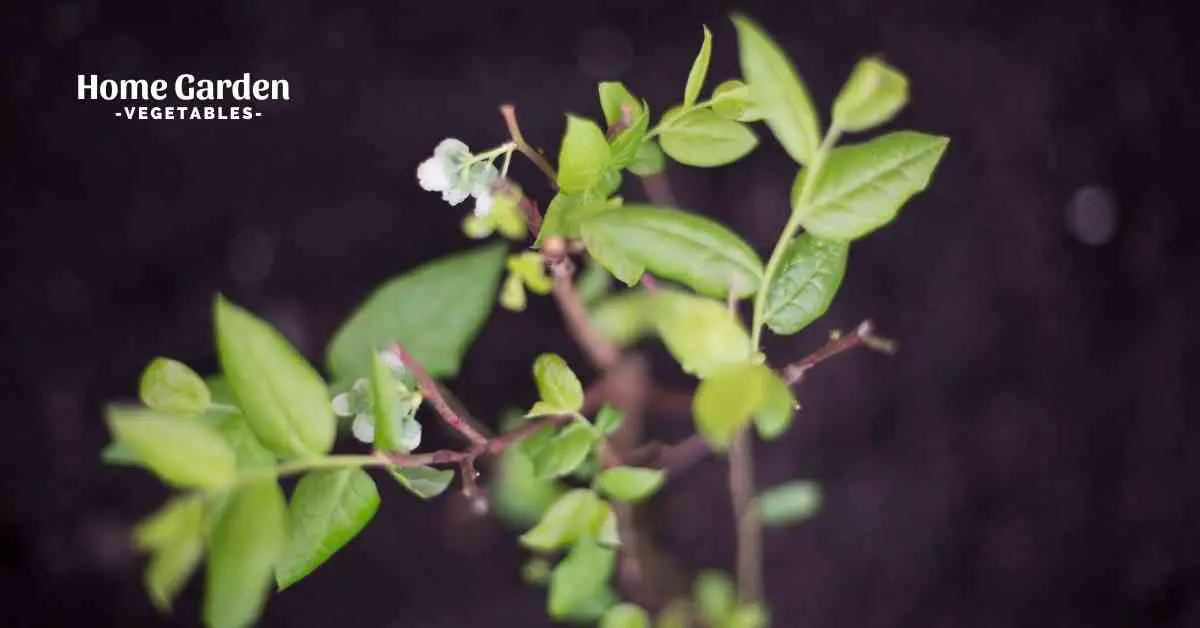Blueberries are flavorful and nutritious fruits and brighten up the garden with the beautiful bush laden with brightly coloured berries in the summers. They’re easy to grow and very productive, as long as they get the right growing conditions.
Though blueberries aren’t very demanding, the one thing they won’t grow without is – acidic soil. Blueberries won’t perform well in alkaline soil. You’ll have to test the soil pH and lower it sufficiently to meet the requirements of a blueberry bush. Don’t worry. Acidifying the soil isn’t as hard as one might think. Continue reading the post and you’ll learn how to make acidic soil for blueberries.
Reader Poll: What online courses would interest you?

Soil Requirements For Blueberries
While most plants prefer neutral pH, i.e. between 6.5 and 7.5, blueberries have unique soil pH requirements. They’ll grow best when the soil pH is between 4.3 and 5.5. This is significantly lower than what most plants will prefer. If you grow blueberries along with your other garden plants in neutral soil pH, blueberries will experience slow growth, yellowish leaves and little or no fruit.
Acidic soil is rich in acid-loving bacteria. The bacteria break down soil minerals to release phosphates, magnesium and iron. These important elements are easily available to blueberry bushes through the roots, helping the bush flourish.
Lower the soil pH before planting blueberries and maintain it within the ideal pH range throughout the lifespan of the blueberry bush to ensure high productivity.
Subscribe to our newsletter!
How To Test Your Soil PH
Before adjusting the soil pH, you need to find out what it is at the moment. The only way to find out the existing soil pH is to test your soil. Testing the soil will give you an exact measure of the soil pH and give you a fair idea of the amount of amendments you need to add to bring the pH to the desired level.
You can take a soil sample from the area and submit it to a soil testing lab, usually available at university extension services. They’ll give you a complete report, with not only the soil pH but also the nutrient composition, texture and percentage of organic matter in your garden soil.
Alternatively, you can purchase a soil testing kit from a garden center. They’re usually inexpensive, easy to use and give you a fair idea of the soil pH. However, the results aren’t always as accurate as you would get from a soil testing laboratory.
Once you know the soil pH, see if it lies in the range 4.3 and 5.5. If it does, your soil is perfect for growing blueberries! However, in most cases, your garden soil will have a higher pH, in which case, you’ll need to bring it down with suitable amendments.
Amending Your Soil PH For New Blueberry Plants
The ideal way to lower the soil pH before planting new blueberry plants is to add granular sulfur. You can expect to lower the soil pH by one point by adding 1 pound of sulfur to 25 square feet of soil. According to experts, sulfur should be amended in the soil at least three months before planting to give it time to stabilize the pH. Ideally, you can amend the garden soil in the fall and test the pH again in spring before planting blueberries.
Alternatively, you can also lower the soil pH organically by amending it with sphagnum peat moss. This is also an excellent option if you have not amended the soil in the fall and are looking for ways to grow blueberries in spring nonetheless. If the existing soil pH is between 5.5 to 7.0, adding 4 to 6 inches of sphagnum peat moss to the top 6 to 8 inches of soil will acidify the soil enough to plant blueberries.
Amending Your Soil PH For Existing Blueberry Bushes
If the blueberry bushes are weak, have yellow leaves and are not producing as expected, the reason is often the soil pH. Test the soil pH to know for sure if a higher pH is causing the problem.
If the pH is higher than your blueberries would like, there are several ways to lower the soil pH for existing blueberry plants. Sprinkling sphagnum peat moss of coffee ground around the base of the bush is effective in lowering the pH. However, since blueberries have delicate roots close to the soil surface, avoid digging more than an inch deep around established blueberry bushes.
Acidic fertilizers, especially those containing ammonium sulfate or ammonium nitrate are a good choice for keeping the soil pH low for blueberries. A great way to bring down the soil pH over time is to use pine needles as mulch.
Maintaining Soil PH For Blueberries
If you’re living in a region where the normal soil pH is neutral or alkaline, the ground sulfur amendments made before planting blueberries won’t last throughout the life of the bush. You’ll need to test and maintain the pH every two months or so to get the most of the blueberry bush. Use acidic fertilizers, acidic mulches and other tricks discussed above to keep the soil pH down and continue growing blueberries in the best conditions.
Conclusion
That was how to make acidic soil for blueberries. It isn’t hard to acidify the soil and maintain it for growing blueberries. When the bush returns the favour with baskets full of fresh, juicy berries, it will all seem worth it.

